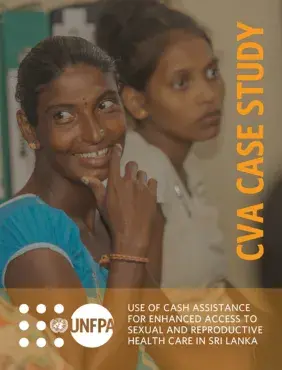As part of the response to Sri Lanka's severe socio-economic crisis since 2022, UNFPA Sri Lanka implemented cash assistance programs from July to September 2023 to address critical shortages in the healthcare system. Supported by the Government of Australia and in collaboration with Save the Children Sri Lanka and government bodies, the initiative aimed to ensure access to sexual and reproductive health (SRH) services for vulnerable groups, including pregnant women, adolescent girls, and persons with disabilities. This was against the backdrop of compounded impacts of the COVID-19 pandemic, economic turmoil, and regional drought.
UNFPA provided cash assistance to cover transportation costs for accessing critical health and protection services and to procure essential hygiene and maternal items. The project also included capacity building for healthcare providers as well as the distribution of maternity and dignity kits. Feasibility assessments emphasized market evaluations and risk analysis, ensuring safe cash delivery.
This comprehensive approach, integrated within a broader Sexual and Reproductive Health (SRH) and protection framework, reached over 50,000 beneficiaries across more than 10 districts. UNFPA adhered to global CVA guidelines and actively participated in the National Cash Working Group, offering valuable recommendations for gender-based violence (GBV) risk mitigation. This initiative was a crucial part of UNFPA's Humanitarian response to the crisis, aiming to sustain progress in maternal healthcare and GBV support mechanisms.


